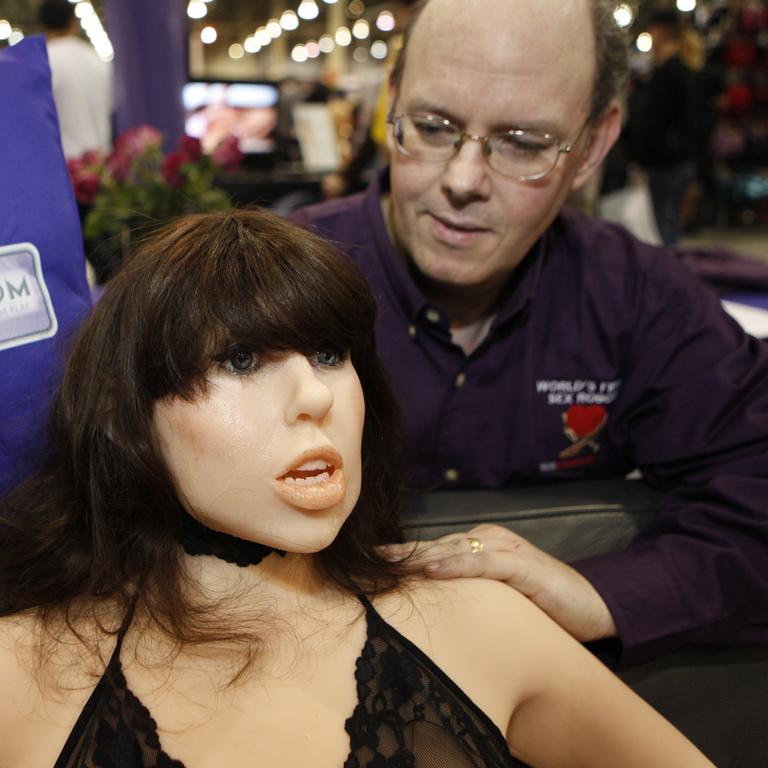Why sex robots are recommended for older people
A bioethicist in the US has argued “sex robots” could be the key to restoring and maintaining the human dignity of older people.
A US bioethicist has said “sex robots” could be used to maintain and restore “human dignity” for older people with disabilities, but they’ll need some design tweaks.
University of Washington philosophy adjunct professor Nancy Jecker said “ageist” opinions about older people and their sexuality has led to the design of sex robots targeting younger, able-bodied people, but older people, particularly with disabilities, could benefit more from the technology.
RELATED: Racy review trend sweeping YouTube


RELATED: Star reveals her own lifelike ‘sex robot’
She made the argument, and countered critics in a paper published this week in the Journal of Medical Ethics.
She argues that unlike “other objects used to enhance sexual activity”, sex robots are capable of touch, speech and human-like movement and behaviour, arguing what they really simulate is “being with another human being” and that they could be a “critically important tool to support sexuality for older persons with disabilities”.

RELATED: Sexologist shocked by sex toy
According to Ms Jecker, while older people might have changed sexual capabilities, it doesn’t mean they don’t still want to have it.
But they need more than the current offerings.
Ms Jecker highlighted Roxxxy, a life-size sex robot with big boobs and preprogrammed “girlfriend personalities” with names like “Frigid Farrah, Wild Wendy, S & M Susan, Young Yoko and Mature Martha” as “typical” of the focus on young men as the customer base.

“Robots designed to integrate with … older users may bear little resemblance to contemporary sex robots that dominate film and television shows,” Ms Jecker said, but argued “society ought to make reasonable efforts to ensure access to sex robots for older adults with disabilities that impair sexual functioning.”

She said “sex robots will need to engage older users romantically and affectionately, as well as sexually” pointing to depictions of older people’s love as based in things like “talking and sharing, hand-holding and moments of tenderness”.
Ms Jecker countered current criticisms of sex robots by arguing the concerns would be alleviated by better design that broadened their appeal, suggesting this was already occurring by highlighting a “transgender penis that attaches to a removable vaginal insert” made by the same company that makes the Roxxxy doll mentioned earlier.
She argued ethical concerns about consent didn’t hold much weight for robots and actually ran the risk of trivialising the traumatic experiences of real people.



